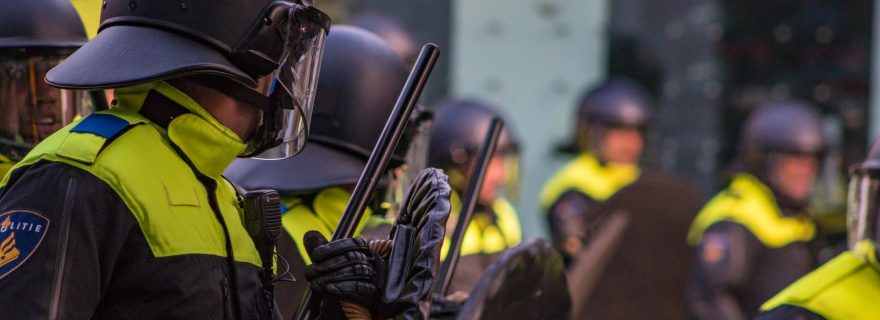Critical trust, both ways, as a basis for good supervision
Do supervisors of the police need to rethink their role, and if so, why, to what extent and with whom?
In this blog I would like to reflect on the Cahier Politiestudies 55: Toezicht op de politie (see notes for further details). As an inspector at the Inspectorate of Justice and Security (with supervising the police as my core business) and as a regular contributor to the Cahiers, it gives me the chance to participate in and perhaps contribute to the debate on the question of what defines good policing, and in its footsteps, how supervision can attribute to this.
Is the way supervision is ensured perfect as it is now, or is there need or even room for improvement? With regards to the Cahier, there are three positions in particular that sparked this reflection. The first is from the well written and to the point article of Ludo Block, ‘Toezicht op de particuliere recherche in Nederland’ (on pages 223 to 246). His conclusion, which could be summarized as less is more, is worth exploring. The same goes for one of the recommendations made by Heinrich Winter and Johan de Kruijf in their article ‘Sturing van de Nationale Politie’ on page 192: the need to design a more effective and efficient way to supervise the police. Last, but not least, is the observation on page 13 of the Cahier by the editors in their editorial that there is a rather vast amount of independent specialized external supervision of the Dutch national police. The narrative in my underlying essay for this blog, ‘Is er onafhankelijk toezicht op de boa’s in Nederland?’ (translation: ‘Is there independent supervision of the BOA (public non-police investigative officer) in the Netherlands?’), supports these perspectives.
The underlying sentiment of these opinions made me think of Alex Vitale’s book, ‘The End of Policing’. He states that few positives will happen unless police agencies rethink their roles in public safety and then offers a different framework for thinking about how law enforcement relates to the communities it serves. He challenges standard accounts of how to reform policing, by arguing that true safety demands directing resources away from police and prisons and towards economic development, education, and drug treatment. A sentiment in the United States that is currently reflected in the rally cry to defund the police, like in Minneapolis, which argues as well that policing alone cannot solve more systemic issues. At the same time, this doesn’t mean policing should be abandoned, it should rather be regarded as a necessary but not sufficient element. A reflection on how to organize this, and it’s supervision, therefore remains important.
The large number of traditionally specialized supervisors is understandable from a historical perspective, from how society has (more or less organically) developed over the past half century, producing silos of supervision with specialized focuses. Our society however has gotten more and more complex, sparking the question whether resources should be directed away from these specialized supervisors towards more broadly oriented supervision.
The Inspectorate of Justice and Security’s supervisory field has expanded to include the entire domain of justice and security. It is not only the Inspectorate as an organization that is undergoing major change: the department-wide programme ‘The Ministry of Justice and Security is changing’ (Jen V Verandert) and government standpoints on supervision, such as the ‘Instructions concerning State Inspectorates’ (Aanwijzingen inzake Rijksinspecties), require clarity on the position of supervisory authorities. Furthermore, incidents with strong societal impact are fueling the public debate about the meaning and role of supervision.
Though the Inspectorate cannot achieve good supervising just on its own, it did over the last decades contribute to a just and safe society by supervising organizations under the authority of the Ministry of Justice and Security. Through investigations, the Inspectorate provides insight in the quality of the performance of tasks and compliance with the rules and norms. In so doing, it aims to signal risks and encourage improvement within organizations. The cornerstones for succeeding in this task are independence, a thorough knowledge of the field, and critical trust. Most of us have neither the time nor the expertise to examine every decision or explore all the evidence. We rely on judgements about the values and behaviors of those in charge. For the individual inspector, ‘critical trust’ may be the best frame of mind: neither outright skepticism nor uncritical acceptance.
This goes both ways in order to be successful. Even the most seasoned and experienced inspector needs the true commitment, willingness, and understanding from the organizations being supervised to be able to do their job properly. At the end of the day, the public should be able to hold both accountable for the result. With responsibility comes accountability.
About the author: Mr. drs. J.J. Obdam is a senior inspector at the Inspectorate of Justice and Security and at the Law Enforcement Council. Besides that, he was a (part-time) senior advisor of the Chief of Police in the past four years. This article is written in his personal capacity and reflects his own views.
Note from Joery Matthys (co-editor of the Cahier Politiestudies 55): The Cahiers Politiestudies is published four times a year, with each publication concentrating on a particular theme. It has a small team of core editors, and for each issue guest editors from Belgium and the Netherlands are invited to join, ensuring an international and multidisciplinary approach. Its contributors, much like its target audience, consist of both academics and professionals in the fields of policing, justice, and related areas.
Photo by Ben Koorengevel on Unsplash.

